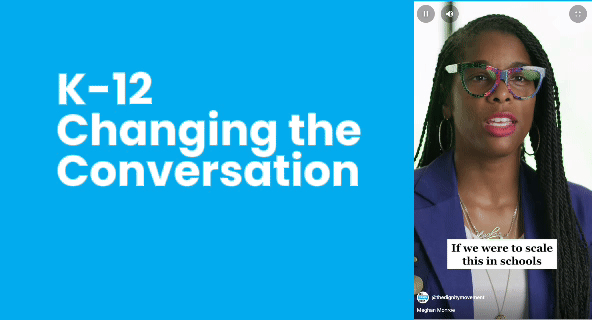Each level of the scale has been modified with language that is developmentally appropriate to young people, with an eye to the types of situations students face in the school environment. For example, a THREE changes from “We’re the good people and they’re the bad people. It’s us vs. them,” to “We’re the good people and they’re the bad people. We’re always right, and they’re always wrong.”
A SEVEN changes from “We fully engage with the other side, discussing even values and interests we don’t share, open to admitting mistakes or changing our minds,” to “We want to know the other person’s side. We’re willing to learn new things, admit mistakes, or change our minds.”
The skill-building suggestions on the reverse side of the scale remain the same in principle, with slight edits to the language used to describe key practices that can help embed dignity into the very fabric of our school communities.
The Youth Edition of the Dignity Index can be applied to the programs and practices already happening in schools, like those promoting Active Listening and Empathy, which encourage open dialogue where everyone—educators, students, and parents—feels heard, affirming the dignity of each person; Restorative Practices, which help rebuild relationships and address conflicts with dignity, compassion, and understanding; and Inclusive Resources, which recognize the diverse perspectives and cultural backgrounds students bring to school, and teach that “each one of us is precious and irreplaceable, so we should treat each other with dignity, no matter what.”
Of course the concept of dignity is not confined to the classroom. In fact, the most transformative practices begin in our homes. Schools can play a crucial role in supporting the family’s role in nurturing the dignity mindsets and practices that their children bring to the classroom.
We are excited about this new Youth Edition of the Dignity Index and the growing interest in dignity as a tool to improve the culture of our schools. By taking simple but powerful steps—listening, understanding, respecting—we can create a space where every student, educator, and family member thrives.
Meghan Monroe
Senior Program Associate
K-12 Education







